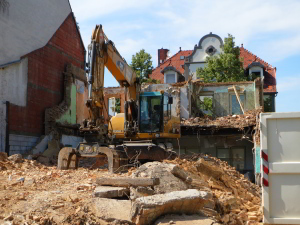What causes the symptoms of a concussion?
Confusion, sensitivity to noise, drowsiness, headache – these are some of the symptoms that may occur minutes, or even days, after a concussion. But exactly what causes concussion symptoms?
Concussion is a type of brain injury usually caused by a blow to the head, although it can be caused by any whiplash-type motion, even if the head is never touched. This is another way to see that helmets protect the skull, but can never give 100% protection against concussion.
A concussion is not structural damage that can be seen in a typical CT or MRI scan. The damage actually goes down to the cellular level.
Brain tissue is very soft – think soft butter. When the brain tissue is pushed against the skull, or suddenly twisted, the brain cells themselves can twist and tear.
Cells are like little factories, with highly developed communication systems tying them together. When the little factory is damaged, a number of things can happen.
For example, important materials may “leak” out of the cell, no longer properly contained. Communication between cells may break down. Normal balance is lost. And those little factories go into high gear to try to get everything working again. They may start to produce more of certain things that your brain may have trouble dealing with, such as free radicals or inflammation.
 Think of a city after a war, or riot. Bricks are lying everywhere. Normal communication is broken down. There may be looting. But hopefully most citizens are trying to get things back to normal. Meanwhile, nothing is normal. Buildings may not be recognized. Family members may not know where other family members are. There are gas leaks, fires, and broken pipes.
Think of a city after a war, or riot. Bricks are lying everywhere. Normal communication is broken down. There may be looting. But hopefully most citizens are trying to get things back to normal. Meanwhile, nothing is normal. Buildings may not be recognized. Family members may not know where other family members are. There are gas leaks, fires, and broken pipes.
Sometimes things that should be helping can cause other problems – a fire hose causing flooding in a nearby room, police cars blocking roads.
Remember that this is all happening on a cellular level. It’s incredibly complex, and it’s not easy to see what’s going on from the outside, which is why it’s taking researchers so long to understand the details.
Usually, the brain regains its normal function within a couple of weeks. However, there may be parts of the injury that do not resolve. This can lead to long term problems, such as post concussion syndrome, or chronic traumatic encephalopathy (CTE), a condition occurring late in life in people who have had repeated brain trauma (such as people who played contact sports).
Though we still have a lot to learn about concussion, we’ve come a long way in the past few years. Understanding what is going on in the brain after a concussion is helping with the development of new treatments.
For example, if there are too many free radicals in the brain, could we use antioxidants (as a patch or oral supplement) to clean things up faster, and maybe avoid long term issues?
Meanwhile, if you get a concussion, see a doctor. Be sure to rest and stay away from computer screens and heavy mental activity for three days. Let your doctor know if new symptoms appear, or if some don’t go away.
More tips here: What Should You Do If You Think You Have Had a Concussion?

TheraSpecs
11 July 2016 @ 12:05 pm
RT @migraine_blog: What causes the symptoms of a concussion?: Confusion, sensitivity to noise, drowsiness, heada… https://t.co/v1B0bgMpCM
2 April 2020 @ 9:50 pm
My cousin had a concussion after slipping through a wet floor last night. Although we already brought him to the doctor, we still need to know more about it. I had no idea that the brain regains its normal function within a couple of weeks after a concussion. However, you noted that there may be parts of the injury that do not resolve. With that, I am looking for concussion injury treatment for my cousin here in San Francisco.